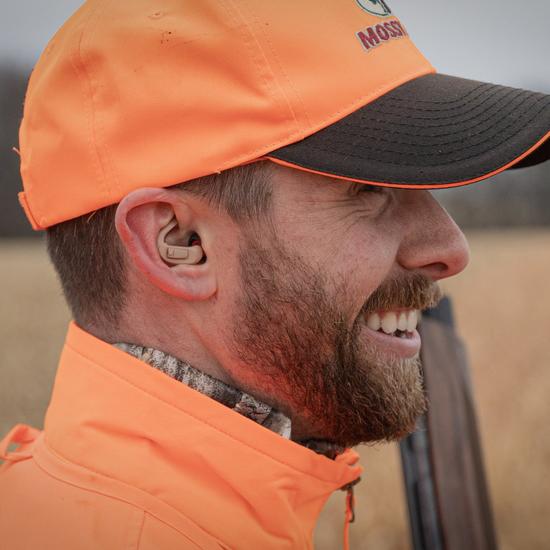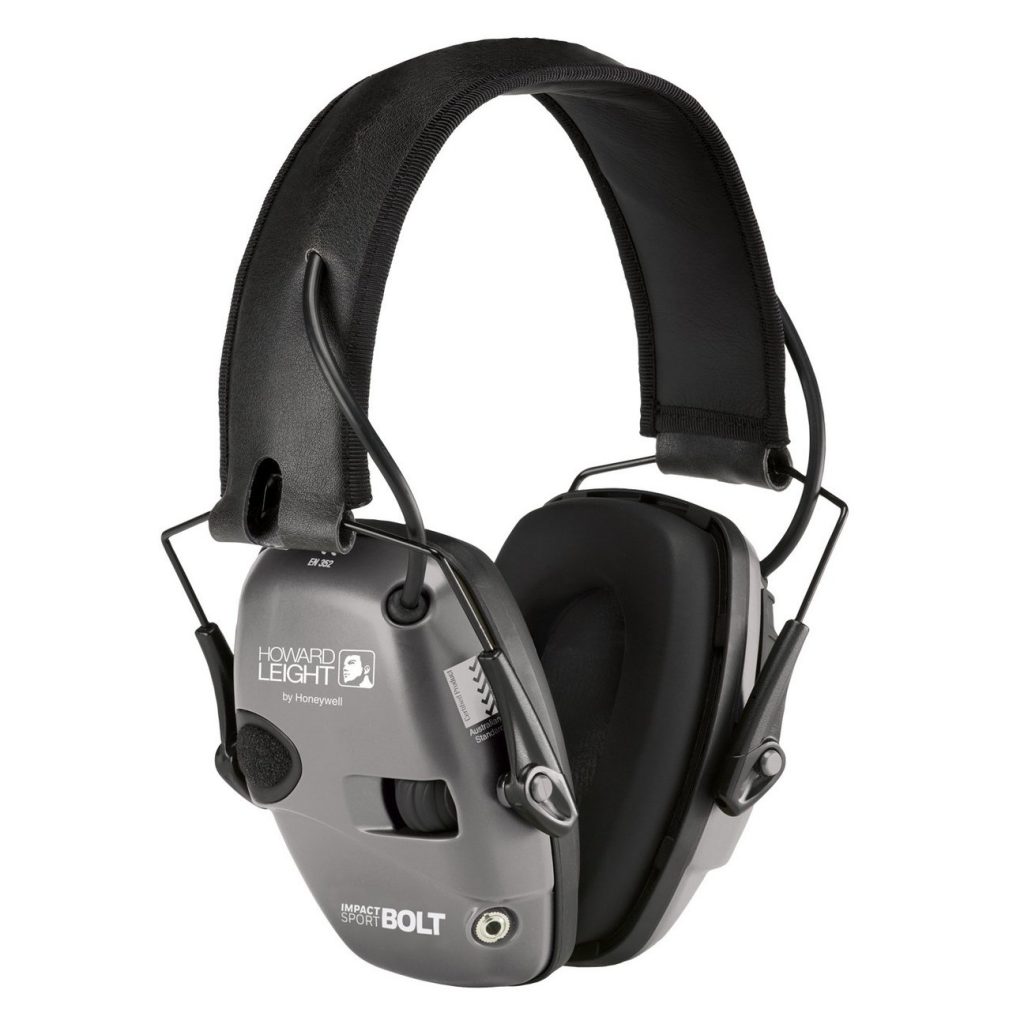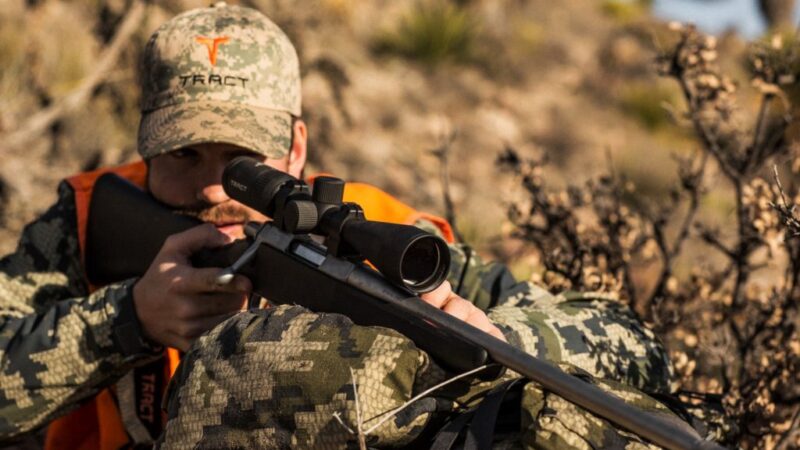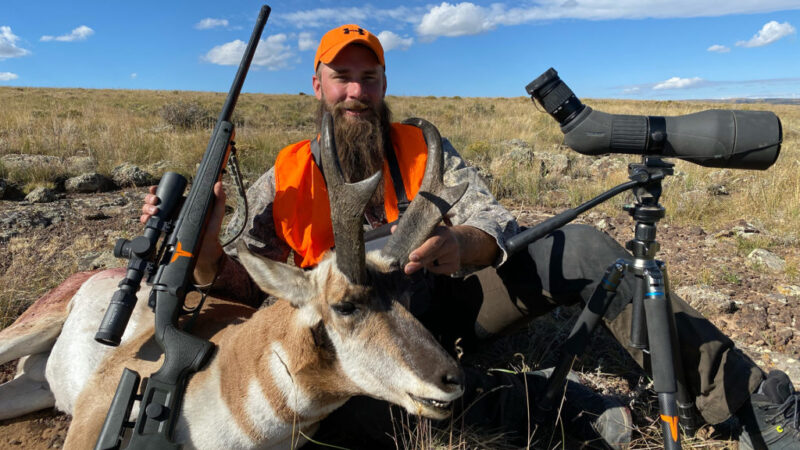The Importance of Hearing Protection for Shooters
The importance of hearing protection for shooters and hunters has become a much-discussed topic.
As sportsmen and shooters, we are focused on protection. We buy high-impact shooting glasses to protect our vision. We acquire travel cases and home safes to protect our firearms. Many of us choose firearms to protect our homes. One aspect of protection that we as shooters and hunters are becoming more and more aware of is hearing protection.
Hearing Protection for Shooters
In the simplest of terms, our hearing is derived from the microscopic hairs in our ears bending back and forth from the sound waves that funnel into our ears. This is a fantastic oversimplification of the process, but when the sound waves are too strong, the hairs aren’t able to recover from the bending, and some die. The loss of bending hair results in hearing loss.
What is Too Much Noise?
Sound is measured in decibels (dB). And everyday noise that is safe and will not damage the ear is about 85dB. After 85dB, hearing loss can occur with prolonged exposure.
A circular saw, for example, has a dB rating of about 110. While hearing loss won’t be permanent immediately, it could occur if you use it for several hours. This is why many old-timer machinists or rock stars are deaf as codfish. They were exposed for long periods to incredibly high levels of noise.
With gunshots, we aren’t talking about sustained exposure. We have probably all heard or even said “You won’t notice the shot when hunting” or “it’s only one shot.” But after 120dB, hearing damage is almost instantaneous.
A .22 LR can produce roughly 140dB whereas a big bore rifle like a .338 Lapua can produce 175dB. Remember that those numbers are exponentially more powerful. So yes, while you might not notice the sound in the excitement of the shot, you will notice the ringing in your ears while you quarter that elk. And your spouse may notice when they have to shout to get your attention after the season ends.
Hearing Protection
For hearing protection, sportsmen today have more options than ever before. Many hearing protection devices can be purchased for very little money. Bespoke options outweigh the costs in their convenience and comfort. Here is a list of different options that will make choosing your hearing protection much easier.
Ear Plugs
The ubiquitous foam earplugs that seem to end up in everyone’s dryer are a great option for casual shooting and just to have on hand to give out at the range. Earplugs do have some shortfalls. The best foam plugs block about 30db worth of sound. So that report from the .22 is safe for a longer period but continued exposure like at a gun range all day will still lead to hearing damage. In many instances however, plugs can be paired with other options for a layered defense.
Since foam plugs need to be rolled and inserted into the ear canal these aren’t the best option for hunters who need to quickly take a shot. Blind or stand hunters will have more time to put plugs in than their spot and stalk counterparts.
There are custom-fit plugs, like these from Tetra Hearing, that while a bit more expensive, are much more comfortable and in most cases provide better noise protection. Your local audiologist can take fittings that you can send to the company to make a bespoke pair of plugs that will feel like you aren’t wearing anything.

Tetra Multi-Pursuit hearing devices are optimized for deer, elk, turkey, waterfowl, upland and range sounds, while providing hearing protection from loud gunshots.
Earmuffs
Headphones, earmuffs, or “cans” as they’re sometimes called, offer some comforts and advances that should put them in the range bag of every shooter. Earmuffs come in two types: passive or electronic. Passive muffs seal around the ear and block noise. Since these don’t require any set up or modification they are usually cheaper than their electronic counterparts.
Electronic muffs feature the same decibel protections as the passive variety, but come with some bonuses. Most electronic sets allow you to hear lower-level sounds like a conversation. On some models with a volume control you can tune them so you can use them as a hearing aid to hopefully hear that snapping twig or whispers of your buddies in the duck blind. Some higher-end electronic models like these Howard Leights also feature an audio jack so you can listen to music or a phone call while shooting.

The Howard Leight Impact Sport BOLT Electronic Shooting Earmuff offers a lightning-fast .5 MS (millisecond) attack time for instant hearing protection.
Earmuffs can be worn around the neck while not in use so they are a quicker option than plugs. Electronic muffs can be worn all the time and still maintain a good range of hearing in the woods.
A consideration while buying a set of earmuffs is the type of shooting glasses you will be wearing. If the padding is not cut for shooting glasses, you will open the seal around your ears. This also reduces the efficiency of the setup. Replacement pads can be purchased to fit your glasses. Additionally, you may want to compare or test when possible if your earmuffs will be too bulky for shooting. Most sets designed for shooting sports feature a slimmed-down design so they won’t interfere with your face’s position on the rifle stock.
Suppressors
Depending on your state and your budget, a suppressor/silencer is a great option. Thirty nine states allow the ownership of a suppressor and while arguably contentious, their benefits are obvious. Most suppressors reduce the report of a gunshot by 25-30dB. Making that .22 safer to shoot and bringing the report of a .308 (156dB) down to that of a .22. Suppressors don’t silence gunshots so you should still pair your suppressor with additional hearing protection.
As sportsmen, we constantly fight to protect places we care about. As shooters, we need to start by protecting ourselves. From being able to hear a buck snort in the woods, to hearing your friend while out at a restaurant, our hearing is vital to who we are.
Regardless of if you have hearing loss or not, the goal is to protect what you have left. Buy hearing protection, make it part of your shooting routine, and make sure those people you bring into the sport understand the importance of hearing protection for shooters.









